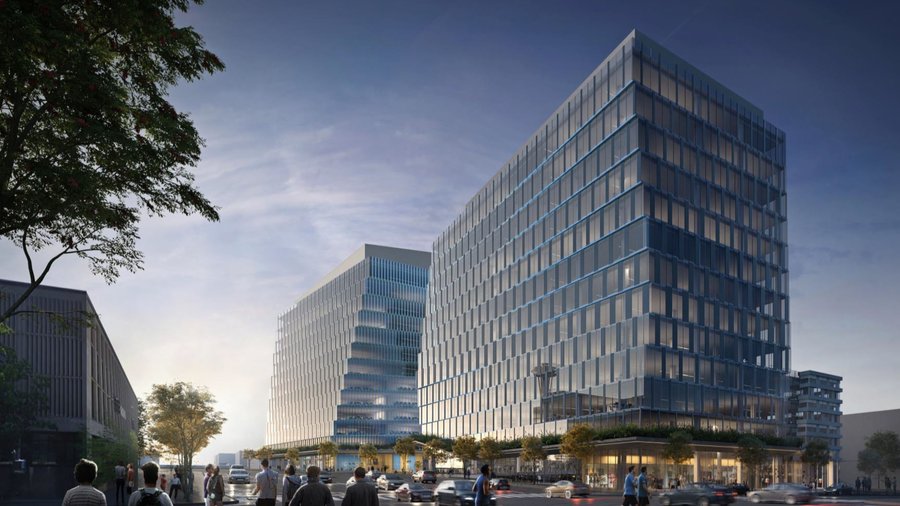With Seattle lab space at a premium, it might seem logical for growing biotech companies to look elsewhere. And some — notably Seagen, the second-largest biotech employer in the state — have successfully adapted to suburban settings such as Bothell.
But while Bothell has enhanced its profile as a life sciences destination, many executives still would rather take their chances in the Emerald City where space is limited and costly.
The unscientific reason: Seattle is just much cooler than Bothell.
“I personally find urban settings to be so energizing,” said Steve Harr, CEO of Sana Biotechnology Inc. “I think that for a lot of our younger workforce, they really thrive in being closer to city centers and being closer to mass commuting hubs and so I love being in the city.”
Harr, who comes from Juno Therapeutics, co-founded Sana in 2018 and led it through a $587.5 million initial public offering earlier this year. The biotech, with offices in San Francisco, Boston and Washington, occupies 60,000 to 70,000 square feet in its Seattle headquarters at 188 E Blaine St.
Sujal Patel, Nautilus Biotechnology CEO, is looking for office space in Seattle and close to finalizing plans to build out his team. Nautilus, which landed on the Nasdaq Thursday through a SPAC, is also building out its lab space in Silicon Valley.
“Companies that are young, like us, we want to have a vibrant workforce, we want to have beautiful energy, we want to attract A-plus talent," he said. "And if you're going to do that, I think in the type of work that we do ... we've really got to have a presence in one of the two major cities."
There are several other reasons biotech companies want to be in Seattle, one being access to the feeder programs and institutions like the Fred Hutchinson Cancer Research Center, Seattle Children’s, the University of Washington, the Bill and Melinda Gates Foundation and the Allen Institute.
The president of the Hutch, Dr. Thomas Lynch, previously told the Business Journal Bothell was “too far” away. (Bothell is about 19 miles northeast of Seattle.)
According to the latest CBRE report, Seattle had a lab vacancy rate of less than 1%, whereas Bothell has a vacancy rate of about 6% at the end of 2020. But even office properties in Eastside city are being repurposed for lab space.
“I couldn’t find anything without going to Bothell,” Lynch said, in reference earlier this year trying to find space for an equipment center in Seattle. “That’s a little far away. Don’t get me wrong, it’s a lovely place, but it was too far for someone working in South Lake Union.”
Earlier this year, Lynch said he was considering converting office space into lab space in part due to the difficulties in finding available lab space in Seattle. And he's not alone.
Ivan Liachko, co-founder and CEO of Phase Genomics, moved his startup out of CoMotion Labs, renovating a biotech facility under a law firm office in Westlake. To do that, he had to put down $100,000 — no small investment for a startup, Liachko said.
Which again begs the question: What about Bothell? When asked if he’d consider moving lab space up to Bothell, Patel didn't rule out the possibility.
“Bothell has a large amount of wet lab space at very attractive prices," Patel said. "And as we mature as a company, there are subsets of our work which probably makes sense to have in lower-cost geographies and also would certainly be one of our candidates, at some point.”





